Are you an animal lover?
Supporting creatures is pivotal — they also merit privileges and sympathy. Upholding for basic entitlements isn’t just about generosity but recognizing their inborn worth. By supporting their privileges, we’re making a more others-conscious world.
We should unite to guarantee that creatures are treated with poise and regard, protecting their prosperity and encouraging a general public based on compassion and understanding. By pushing for their freedoms, we satisfy our obligation to make a caring society.
Go along with us in supporting creatures and supporting their privileges for a more promising time to come for all creatures.
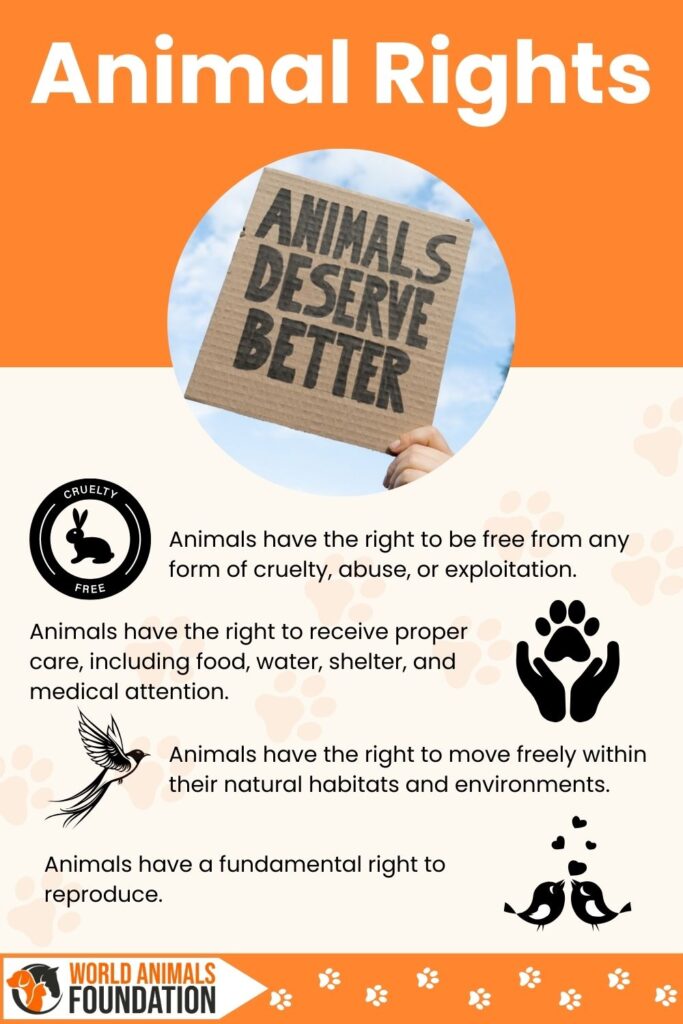
What Are Animal Rights?
Animal rights are rooted in the fundamental belief that non-human animals should be allowed to live their lives without undue interference from humans.
At the heart of animal rights lies the principle of autonomy, which mirrors the concept of choice in human rights discourse. While human rights safeguard freedoms such as expression and freedom from torture, animal rights extend this notion to non-human animals, recognizing their intrinsic worth and right to live free from exploitation.
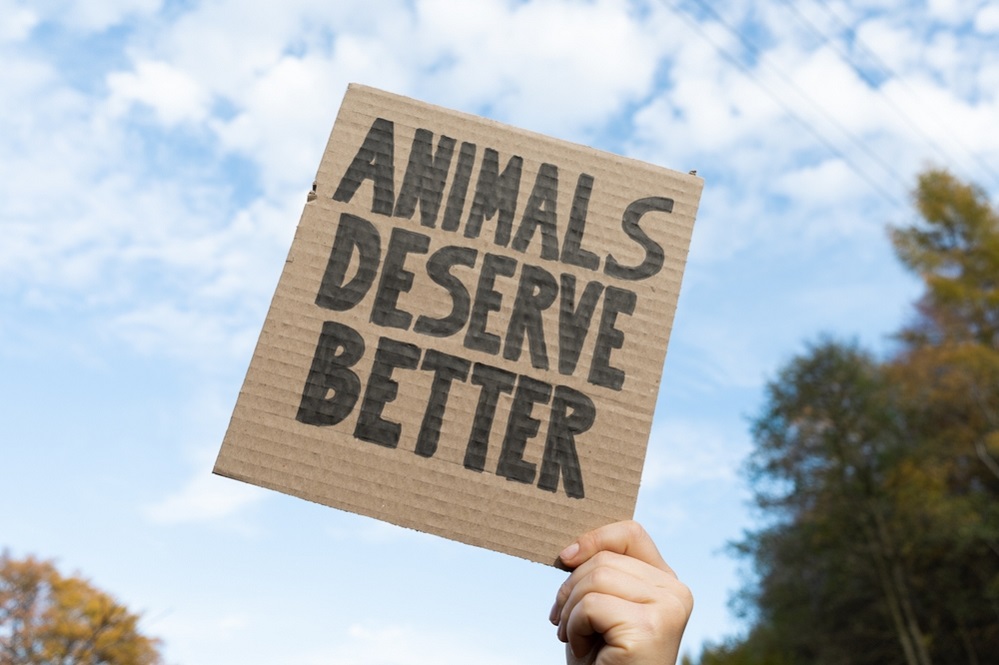
In contrast to human rights, which may vary based on social factors like race, class, and gender, animal rights seek to provide universal protections for all sentient beings. This includes opposition to various forms of animal exploitation, such as the use of animals for food, experimentation, entertainment, or as pets.
Animal rights advocates argue that these practices disregard the inherent value and dignity of animals, treating them as mere commodities or objects for human use.
Animal rights extend beyond individual treatment to encompass broader environmental concerns. Destruction of animal habitats, whether through deforestation, pollution, or urbanization, represents a violation of animal rights by limiting their ability to live natural and fulfilling lives. By safeguarding animal habitats and ecosystems, advocates aim to uphold the autonomy and well-being of all living beings.
Freedom From Exploitation

Animal rights advocate for the freedom of non-human animals from exploitation by humans, whether it be for food, experimentation, entertainment, or any other purpose. This entails recognizing animals as sentient beings deserving of respect and protection from harm.
Right to Dignity and Well-Being
Animal rights uphold the principle that animals have a right to live their lives with dignity and well-being, free from unnecessary suffering and cruelty. This includes providing adequate living conditions, proper care, and opportunities for natural behaviors, ensuring that their intrinsic value is respected and honored.
Do Animals Have Rights?
Only a handful of nations have officially included animal rights in their laws. The US and the UK have put in place fundamental safeguards and rules regarding the welfare of animals.
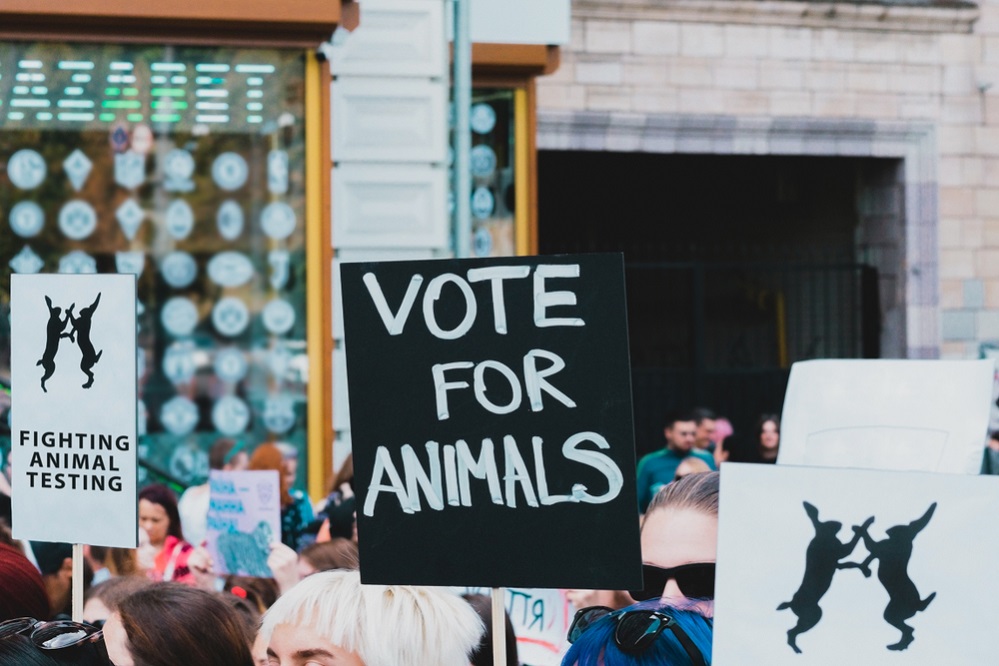
The UK Sentience Bill
In 2022, the UK’s House of Commons introduced the Animal Sentience Bill, aiming to recognize animals as sentient beings deserving humane treatment. If passed, this legislation would mark a significant step forward in animal welfare, officially acknowledging their capacity to feel and suffer.
The US Animal Welfare Act
Enacted in 1966, the US Animal Welfare Act sets guidelines for the treatment of certain animals, including dogs, cats, rabbits, and primates. However, its scope is limited, excluding many species, like farmed animals. While this law doesn’t grant animals full rights or recognize their ability to feel pain, it provides basic protections for their welfare in certain contexts.
History of Animal Rights

The concept of animal rights has roots dating back to ancient India, particularly within early Jainist and Hindu history. In the Western world, philosophers like Aristotle placed humans above animals, viewing them as instruments for human use, while others advocated for gentle treatment of animals.
Across major religious traditions, there have been injunctions against cruelty to animals since ancient times. Key scholars in animal ethics include René Descartes, who believed animals lacked consciousness, Immanuel Kant, who argued against direct duties to animals, and Jeremy Bentham, who emphasized considering animals’ capacity to suffer in moral decisions.
Charles Darwin highlighted the evolutionary continuity between humans and animals, emphasizing mental and emotional similarities. In the late 19th and early 20th centuries, the anti-vivisection movement emerged, opposing the use of live animals in scientific research. Women played a significant role in its growth and influence.
Since the 1970s, there has been a surge of interest in animal treatment among philosophers and scholars, leading to various forms of activism aimed at raising awareness and changing laws to improve animals’ lives and human-animal relationships.
Facts About Animal Rights
Here are some interesting facts about animal rights:
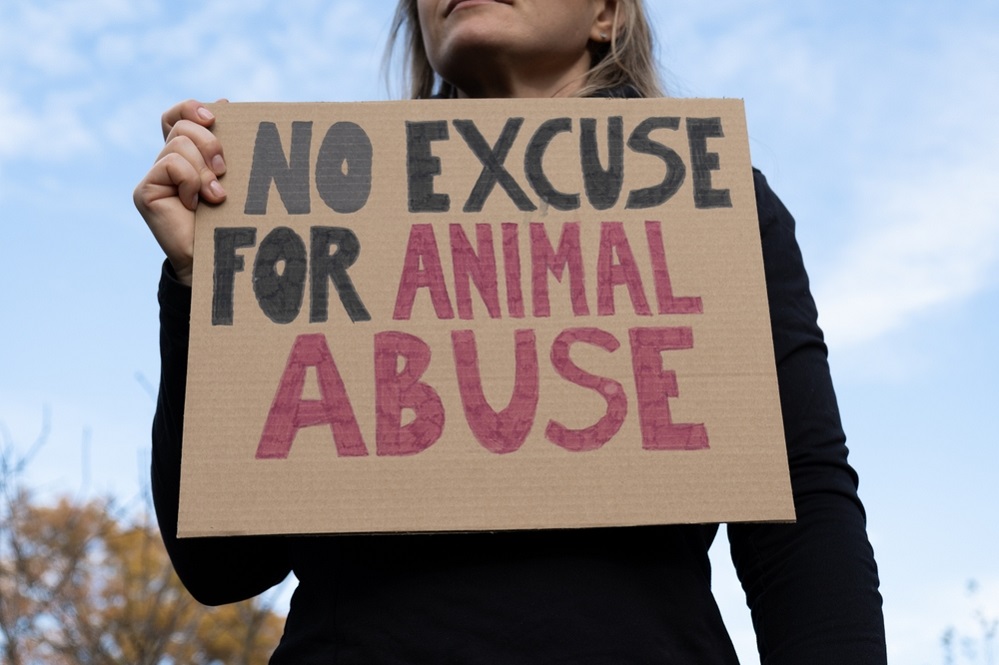
- In the U.S., every circus employing animals has been cited for violations under the Animal Welfare Act.
- The California Orca Assurance Act denies keeping orcas hostage all through the state.
- Canada passed a nationwide ban on cetacean captivity.
- Joaquin Phoenix addressed animal rights in his Oscar acceptance speech.
- The Animal Welfare Act in the U.S. sets norms for the treatment of creatures in research, presentation, transport, and by vendors.
- The European Union has strict regulations regarding the welfare of farm animals, including space requirements and humane slaughter practices.
- Many countries have laws against animal cruelty, including provisions for neglect, abuse, and abandonment.
- Animal rights organizations such as PETA and the Humane Society advocate for legislative change and raise awareness about animal welfare issues.
- Several states in the U.S. have banned the sale of cosmetics tested on animals.
- The use of animals in entertainment, such as circuses and marine parks, has faced increasing scrutiny and public opposition in recent years.
Why Are Animal Rights Important?

Animal rights are important for several reasons. Firstly, animals are capable of experiencing psychological, emotional, and physical pain, much like humans. For instance, orcas in captivity can suffer from depression and boredom, leading to the use of antidepressants.
Similarly, animals in zoos often exhibit stereotypic behaviors indicating psychological distress. As our understanding of animal suffering grows, so does our moral responsibility towards them. Moreover, the scale of animal exploitation is staggering.
Each day, approximately 200 million animals are killed for human consumption worldwide, with affluent nations like Australia, the United States, and Europe leading in meat consumption. The rise of industrial animal agriculture, particularly in the United States, has led to widespread abuse and suffering for animals.
In essence, recognizing and advocating for animal rights is essential not only because animals can suffer but also due to the immense scale of exploitation they face.
Goals of the Animal Rights Movement?
A definitive objective of the basic entitlements development is to put creatures “past use” of individuals, stopping shifty enterprises and works on including research facility testing, whaling, and pup factories.
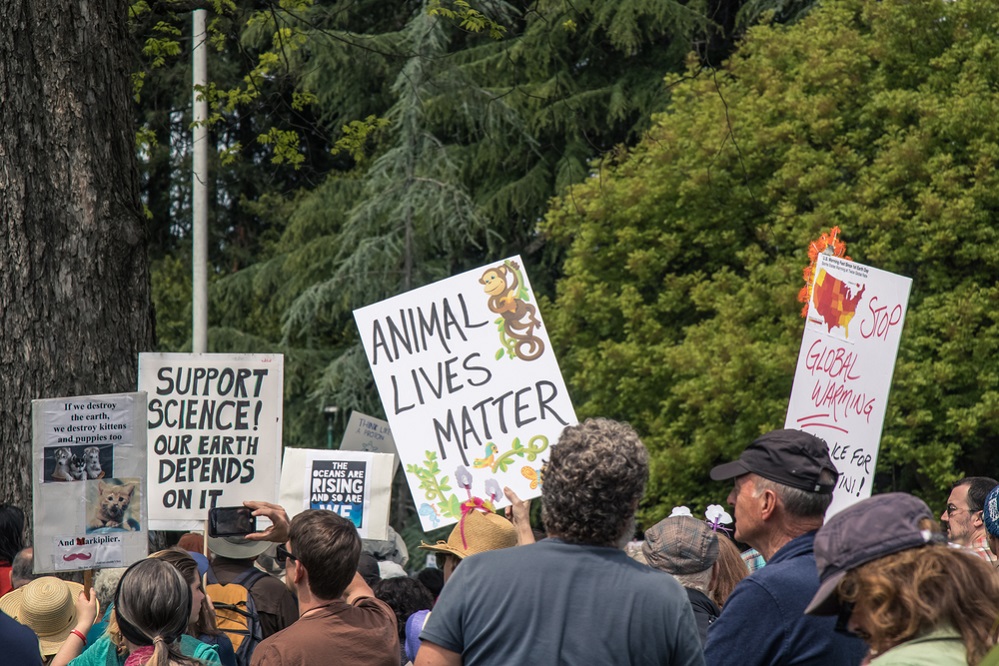
Grassroots Advocacy
- Public demonstrations
- Educational tools like documentaries
- Lobbying policymakers
- Community outreach programs
Legal Approaches
- Advocacy for nonhuman personhood
- Representation in court via a guardian ad litem
- Legislative initiatives for animal welfare laws
- Filing lawsuits against animal cruelty
Promotion of Veganism
- Elimination of consumption of animal-derived products
- Avoidance of animal-derived clothing
- Providing resources for transitioning to a vegan lifestyle
- Promoting plant-based alternatives in restaurants and supermarkets

These strategies aim to raise awareness, challenge legal definitions, and reduce demand for animal products to advance the goals of the animal rights movement.
Types of Animal Rights
Animal rights advocacy is a critical aspect of our ethical and moral responsibilities towards other living beings. It emphasizes the inherent value and dignity of animals, regardless of their species. This movement seeks to ensure that animals are treated with compassion, respect, and consideration for their well-being.
Now, let’s delve into 7 types of animal rights:
Core to Animal Rights
Animals have the right to be free from any form of cruelty, abuse, or exploitation. Animals possess an inherent right to be free from cruelty, encompassing physical, emotional, and psychological harm inflicted by humans.
This right acknowledges their capacity to suffer and emphasizes our moral obligation to prevent and alleviate their pain. this right entails advocating for laws and practices that prohibit cruel treatment, including abuse, neglect, and exploitation.
Respecting animals’ freedom from cruelty is essential for promoting their welfare and advancing the principles of compassion and justice within society
Right to Adequate Care

Animals have the right to receive proper care, including food, water, shelter, and medical attention. Animals possess the inherent right to receive adequate care, encompassing provisions for their physical, emotional, and behavioral well-being.
This right necessitates access to proper nutrition, shelter, veterinary care, and socialization, irrespective of their use by humans. Right promotes respect and compassion towards animals, acknowledging their capacity to experience pain, suffering, and joy.
By prioritizing adequate care, society fulfills its moral obligation to ensure the welfare of all sentient beings.
Fundamental Animal Right
Animals have the right to move freely within their natural habitats and environments. Animals possess an innate need for freedom of movement, crucial for their physical and psychological well-being.
This fundamental right acknowledges their natural instincts to roam and explore their environments. Upholding this right entails providing adequate space and habitat conditions that allow animals to move freely, without confinement or restriction.
Recognizing and respecting animals’ freedom of movement is essential for promoting their welfare and honoring their inherent dignity as sentient beings.
Essential to Animal Autonomy
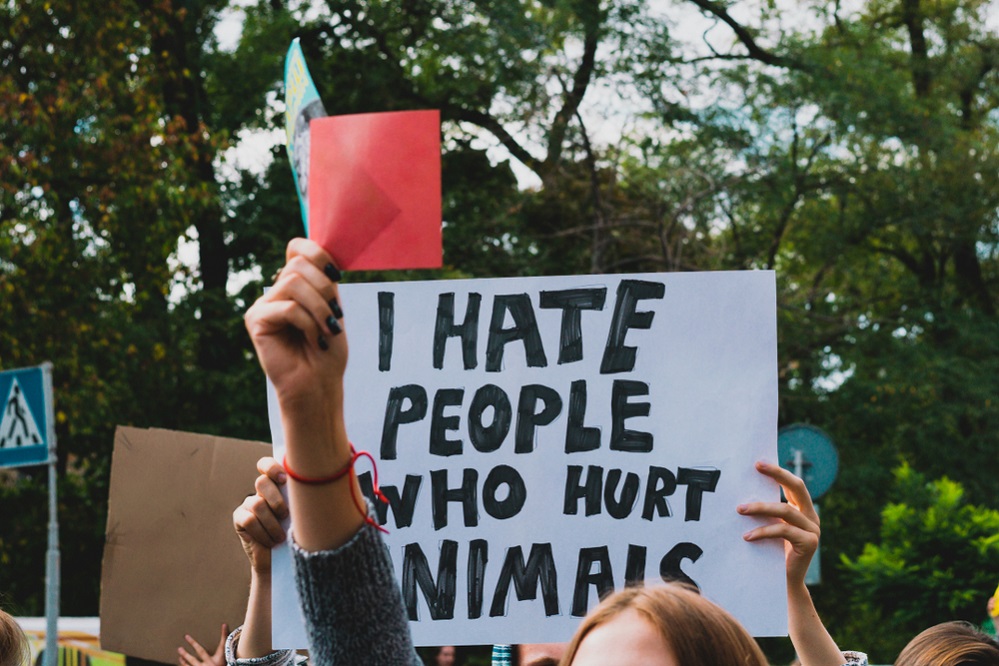
Animals have the right to engage in natural behaviors related to reproduction without interference or exploitation. Animals have a fundamental right to reproduce, as it is integral to their autonomy and natural life cycles. This right acknowledges their biological imperative and the importance of maintaining genetic diversity within populations.
Upholding this right involves refraining from practices such as forced sterilization or selective breeding that interfere with animals’ reproductive freedoms. Respecting animals’ right to reproduction ensures their ability to fulfill natural behaviors and contributes to the preservation of species and ecosystems.
Vital for Animal Welfare
Social animals have the right to engage in natural social behaviors and interactions with members of their species. Animals, like humans, have an inherent need for social interaction and companionship. This fundamental right acknowledges their ability to form bonds and engage in social behaviors essential for their well-being.
This right means providing opportunities for animals to interact with conspecifics or compatible companions, fostering emotional fulfillment and mental stimulation. Recognizing and respecting animals’ social needs contributes to their overall welfare and highlights our ethical responsibility to ensure their rights are upheld.
Freedom from Fear and Distress

Animals have the right to live without experiencing fear, distress, or anxiety caused by human actions or environmental factors . Animals possess the right to live free from fear and distress, essential for their physical and psychological well-being.
This right underscores the importance of providing environments where animals feel safe and secure, devoid of unnecessary stressors such as confinement, abuse, or exploitation. Upholding this right acknowledges animals’ capacity to experience emotions and emphasizes our moral duty to protect them from harm.
By promoting environments that foster freedom from fear and distress, we affirm our commitment to respecting and upholding the rights of all sentient beings.
A Cornerstone of Animal Rights
Animals have the right to express their natural behaviors, such as foraging, grooming, and playing, without restriction. Knowing animals’ innate instincts and behaviors, this right emphasizes their fundamental need to engage in natural activities such as foraging, socializing, and exploring.
Upholding this right recognizes animals as sentient beings with complex cognitive and emotional lives, deserving of environments that allow them to express their natural behaviors freely. By ensuring animals’ ability to engage in these activities, we honor their autonomy and well-being, contributing to a more compassionate and ethical treatment of animals.
Right to Protection from Environmental Destruction

Animals have the right to live in environments free from pollution, habitat destruction, and other forms of environmental degradation caused by human activity. Acknowledging animals’ dependence on healthy ecosystems, the right to protection from environmental destruction is a crucial aspect of animal rights.
Animals deserve to live in environments free from pollution, habitat destruction, and other human-induced harms. Upholding this right not only safeguards animal welfare but also contributes to the overall health and balance of ecosystems, emphasizing the interconnectedness of all living beings.
FAQs
Why are animal rights important?
Animal rights are crucial to ensure the fair treatment and well-being of all creatures, promoting a compassionate society.
How can I contribute to standing up for animals?
You can contribute by supporting organizations, adopting ethical practices, and advocating for policies that protect animal welfare.
What are some common issues animals face today?
Animals face issues such as cruelty, exploitation, habitat loss, and endangerment due to human activities.
Are there laws protecting animal rights?
Yes, many countries have laws and regulations in place to protect animal rights and prevent cruelty.
What are the benefits of advocating for animal rights?
Advocating for animal rights not only improves animal welfare but also fosters empathy, compassion, and a more harmonious relationship between humans and animals.
Final Words
Standing up for animals is crucial to ensure their well-being and protection. Creatures, similar to people, have the right to live liberated from mischief and double-dealing. By advocating for their rights, we promote a compassionate society where all creatures are treated with kindness and respect.
Pushing for basic entitlements benefits creatures as well as mirrors our qualities as sympathetic people. It is our ethical obligation to stand in opposition to mercilessness and bad form towards creatures.
Together, we should defend creatures and make a reality where they can flourish close by us as one and regard. Basic entitlements are central to guaranteeing fair and altruistic treatment, everything being equal. By going to bat for creatures, we recognize their intrinsic worth and respect. It is our ethical commitment to safeguard their government assistance and forestall any type of double-dealing or mischief.














